 Shocking moments when PLA's weapons open fire
Shocking moments when PLA's weapons open fire Famous Lanzhou beef noodles
Famous Lanzhou beef noodles Armed Police hold anti-terrorism drill in SE China's Xiamen
Armed Police hold anti-terrorism drill in SE China's Xiamen Harbin Int'l Ice and Snow Festival opens
Harbin Int'l Ice and Snow Festival opens 'Jin' named the word of the year by cross-strait netizens
'Jin' named the word of the year by cross-strait netizens Chinese scientific expedition goes to build new Antarctica station
Chinese scientific expedition goes to build new Antarctica station
 Chinese naval escort fleet conducts replenishment in Indian Ocean
Chinese naval escort fleet conducts replenishment in Indian Ocean 17th joint patrol of Mekong River to start
17th joint patrol of Mekong River to start China's moon rover, lander photograph each other
China's moon rover, lander photograph each other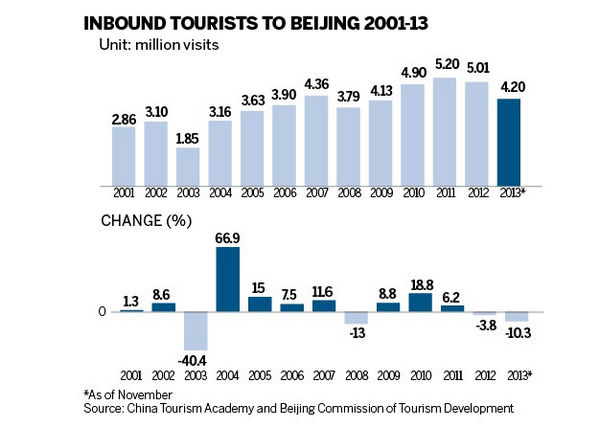 |
Weak economy, a strong yuan, as well as smog given as reasons
Beijing witnessed an unexpected sharp drop in inbound tourism in 2013, as tourism officials looked for ways to reverse the trend.
From January to November, the city recorded 4.2 million visitors, down 10.3 percent year-on-year, the Beijing Tourism Development Commission reported.
The commission blamed the weak global economy and a strong yuan, as well as the city's ongoing pollution problems.
The effect of a 72-hour visa waiver for transit passengers also failed to meet expectations, industry insiders said.
Based on research showing that most people passing through Beijing Capital International Airport would take advantage of the waiver, Wang Yue, deputy director of the authority, said earlier that the policy was expected to attract 20,000 visitors in the first year.
However, the Beijing General Station of Exit and Entry Frontier Inspection said the number was just 14,000.
Beijing is not the only city experiencing a decline.
Statistics from the China National Tourism Administration show inbound tourism reached 118.2 million visits from January to November, a 2.47 percent year-on-year decrease.
China's inbound tourism market has been stagnant in recent years, as tourists to the nation, many of whom are from Japan, South Korea, Russia and the United States, were shunted to other Asian destinations, including Thailand, Indonesia and Malaysia.
These strong competitors have experienced fast growth in recent years, said Dai Bin, director of the China Tourism Academy.
"Compared with countries such as those in Southeast Asia, which have invested heavily in inbound tourism development, China hasn't taken inbound tourism as seriously," said Yang Jinsong, a professor of international tourism at the China Tourism Academy.
"The tropical island of Hainan used to receive many tourists from Russia," he said, "but many of them have started to go to places such as Thailand instead."
Compared with other destinations, he said, Beijing is a "struggling startup" when it comes to the tourism business.
One important step that experts say needs to be taken is to make the market more attractive to Chinese travel agencies.
Yang Xiufang, head of international cooperation for China Swan International Tours, said few Beijing agencies have started to offer two- or three-day packages for passengers who take advantage of the visa waiver because they see little opportunity for profit.
"Most companies are focused on outbound tourism, as more Chinese are traveling abroad due to the strong yuan," he said.
The city also lacks appeal due to its ongoing battle with pollution, said another industry insider who did not want to be identified.
"Considering the market (for transit passengers) is unscheduled and small, most agencies would rather invest in domestic and outbound tourism, which is relatively easy money," he said.
A common response among experts was the call for better cooperation between travel agencies, airlines and the Beijing airport to attract tourists.
In August, Lu Yong, then director of the Beijing Tourism Development Commission, said his authority would work to build an alliance between Beijing Capital International Airport and Air China to deliver ticket discounts.
However, industry insiders say this has failed to materialize. So too has a much-talked-about plan for a pilot duty-free shopping haven near Yabao Road, a retail hub for many foreign traders, a year after it was proposed.
Jiang Yiyi, director of the China Tourism Academy's International Tourism Development Institute, said cheaper airfares are key to attracting more transit passengers.
"Many transit tours are attractive because visitors can explore two destinations at once," he said. "With the global economy the way it is, the Chinese government should be doing more with airports and airlines to come up with discounts."
Bosses at the Beijing Capital International Airport say they are looking into offering cut-price deals at hotels and shopping areas, as well as for traditional Chinese massage or tea-tasting sessions in terminals for transit passengers who take up the visa waiver.
Professor Yang at the China Tourism Academy said attracting visitors requires a long-term national plan, which includes improving the country's image and investment in inbound tourism resources.
"Many tour packages are outdated. Traditional tourism resources have already lost their appeal among today's travelers," he said.
 In photos: Ten 'tuhao' devices in 2013
In photos: Ten 'tuhao' devices in 2013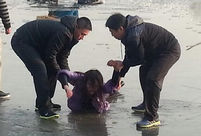 College students saved from an ice hole by brave citizens
College students saved from an ice hole by brave citizens Gallery: Top 10 box office hits in 2013
Gallery: Top 10 box office hits in 2013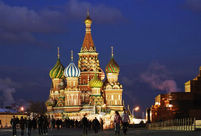 Beautiful churches around the world
Beautiful churches around the world Yang Mi, Hawick Lau hold wedding in Bali
Yang Mi, Hawick Lau hold wedding in Bali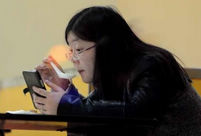 'Phubbing' people seen everywhere
'Phubbing' people seen everywhere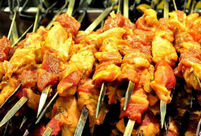 World's biggest snack shop in China
World's biggest snack shop in China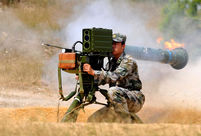 Shocking moments when PLA's weapons open fire
Shocking moments when PLA's weapons open fire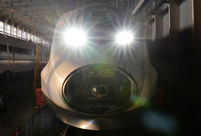 World's fastest train CRH380A assembled in E China
World's fastest train CRH380A assembled in E China Top 10 box office hits in 2013
Top 10 box office hits in 2013 In photos: Ten 'tuhao' devices in 2013
In photos: Ten 'tuhao' devices in 2013 Real estate tycoon measures PM2.5
Real estate tycoon measures PM2.5  'I am on a journey to lose weight'
'I am on a journey to lose weight' 'Cute' artifacts exhibited in Nanjing Museum
'Cute' artifacts exhibited in Nanjing Museum Advanced Chinese weapons that stepped into spotlight in 2013
Advanced Chinese weapons that stepped into spotlight in 2013Day|Week|Month